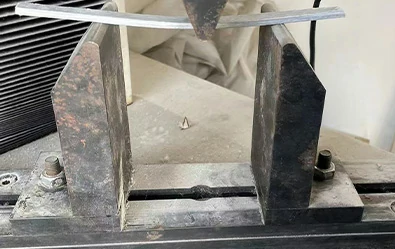loading...
- No. 9, Xingyuan South Street, Dongwaihuan Road, Zaoqiang County, Hengshui, Hebei, China
- admin@zjcomposites.com
- +86 15097380338
- Welcome to visit our website!
fiberglass rebar manufacturers
The Emergence of Fiberglass Rebar Manufacturers Revolutionizing the Construction Industry
In recent years, the construction industry has witnessed significant advancements in materials technology, one of the most impactful being the introduction of fiberglass rebar. Traditionally, concrete reinforcement has relied heavily on steel rebar; however, fiberglass rebar manufacturers are reshaping the landscape with lighter, corrosion-resistant, and more durable alternatives. This innovation not only enhances the longevity of structures but also contributes to a more sustainable construction process.
What is Fiberglass Rebar?
Fiberglass rebar, also known as GFRP (Glass Fiber Reinforced Polymer) rebar, is made by combining fiberglass strands with a polymer matrix. The resulting composite material offers properties far superior to those of conventional steel rebar. It is lightweight, which simplifies transportation and handling on construction sites. Moreover, fiberglass rebar is non-corrosive, making it an ideal choice for environments where exposure to moisture, chemicals, or salt is a concern, such as marine structures, bridges, and industrial facilities.
Advantages of Fiberglass Rebar
1. Corrosion Resistance One of the most significant advantages of fiberglass rebar is its resistance to corrosion. Unlike steel, which can rust and deteriorate over time when exposed to moisture, fiberglass rebar maintains its integrity, leading to lower maintenance costs and extended service life for infrastructure.
2. Lightweight Fiberglass rebar is approximately one-quarter the weight of steel rebar, facilitating easier installation. Workers can handle it with less effort, and it can be transported more economically, reducing overall project costs.
3. Higher Tensile Strength Despite its lightweight nature, fiberglass rebar boasts high tensile and flexural strength. This enables it to withstand significant stress and load, making it an effective reinforcing material.
4. Electrical Non-Conductivity Fiberglass rebar does not conduct electricity, making it a safer option in environments where electrical currents may pose risks.
fiberglass rebar manufacturers

5. Thermal Insulation The material’s thermal insulation properties can help in maintaining the temperature of structures, contributing to energy efficiency in buildings.
6. Sustainability With the increasing focus on sustainable construction practices, fiberglass rebar offers an environmentally friendly option. Its production requires less energy compared to steel and its longevity reduces the need for frequent replacements.
The Role of Fiberglass Rebar Manufacturers
As demand for fiberglass rebar continues to grow, there has been a marked increase in the number of manufacturers entering this niche market. These manufacturers focus on developing advanced formulations and production techniques to enhance the performance and cost-effectiveness of their products.
Quality control is a critical aspect of the manufacturing process. Established manufacturers ensure that their fiberglass rebar meets stringent industry standards and certifications. This not only enhances consumer confidence but also helps in gaining acceptance among engineers and architects who might be accustomed to traditional materials.
Moreover, manufacturers are increasingly investing in research and development, exploring innovations in composite materials and production methods. This focus aims to further improve the properties of fiberglass rebar, such as enhancing bonding with concrete and developing new sizes and shapes.
Conclusion
In conclusion, the emergence of fiberglass rebar manufacturers marks a pivotal moment in the construction industry. As these companies continue to innovate and educate stakeholders about the advantages of this alternative material, we can expect wider acceptance and integration of fiberglass rebar in construction projects worldwide. The benefits of corrosion resistance, lightweight structure, and sustainability present a compelling case for architects, engineers, and contractors to consider fiberglass rebar as a viable choice for the future of reinforced concrete construction. With each passing year, the role of fiberglass rebar is expected to grow, paving the way for more resilient, efficient, and sustainable infrastructure.
-
The Rise of FRP Profiles: Strong, Lightweight, and Built to LastNewsJul.14,2025
-
SMC Panel Tanks: A Modern Water Storage Solution for All EnvironmentsNewsJul.14,2025
-
GRP Grating: A Modern Solution for Safe and Durable Access SystemsNewsJul.14,2025
-
Galvanized Steel Water Tanks: Durable, Reliable, and Ready for UseNewsJul.14,2025
-
FRP Mini Mesh Grating: The Safer, Smarter Flooring SolutionNewsJul.14,2025
-
Exploring FRP Vessels: Durable Solutions for Modern Fluid HandlingNewsJul.14,2025
-
GRP Structures: The Future of Lightweight, High-Performance EngineeringNewsJun.20,2025
